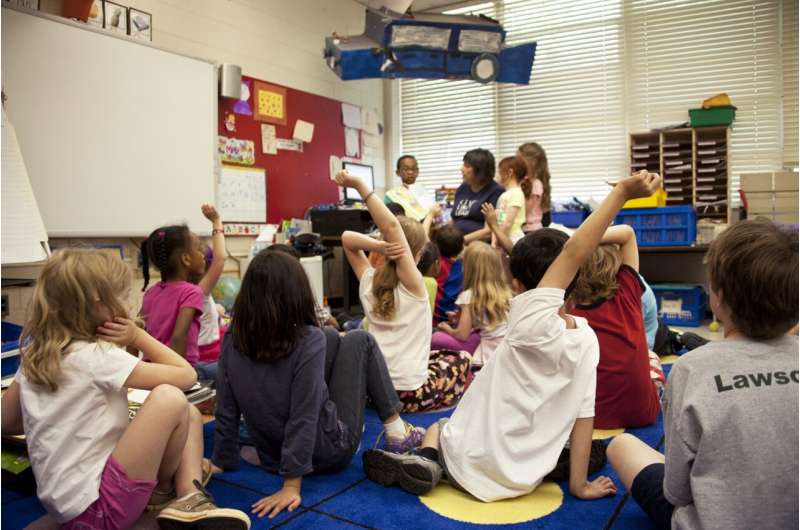In Ontario, for example, the provincial Education Act says “the purpose of education is to provide students with the opportunity to realize their potential and develop into highly skilled, knowledgeable, caring citizens who contribute to their society.” Other provinces provide similar educational guidance that underscores the importance of developing students’ knowledge, skills and attitudes.
Emotional intelligence
Another frequently noted non-cognitive skill includes social-emotional learning or what is sometimes referred to as emotional intelligence. The latter allows students to self-regulate and ultimately become more resilient in the face of adversity and changing times.
Fragmented approaches
Provincial approaches to assessing non-cognitive skills are also fragmented, suggesting more innovative and integrated assessment systems are needed. It is hard to address a problem without the benefit of reliable and valid data sources.
Growth mindset
Non-cognitive skills, sometimes called “soft skills,” include attributes such as “growth mindset.” This refers to a general belief that success is based on hard work and dedication, and is less related to innate and fixed qualities.
A recent working paper published by the OECD, “Beyond Literacy: The Incremental Value of Non-Cognitive Skills,” points out how a broad category of non-cognitive skills predict important life outcomes such as educational attainment, employment, earnings and self-reported health and life satisfaction.
Research also suggests no new mental health policy developments occurred in half of Canadian provinces in the aftermath of the pandemic. It appears provincial education systems have been lagging in targeted policy developments and implementation efforts related to non-cognitive skills.
These “two faces”—cognitive and non-cognitive—helps prepare students for their futures, not our past.
In January, the month named for him in the western calendar, it’s fitting to consider how, in many respects, compulsory education systems require new beginnings in terms of envisioning broader objectives for their student populations.
Teacher education programs, for example, vary significantly within and across Canadian provinces and American states, with limited attention devoted to mental health-related certification standards, including socioemotional learning.
What is clear from these various legislative mandates is that provinces have seemingly endorsed a holistic view of student development. Unfortunately, goal statements that align with holistic student development may look good on paper but are rarely realized in practice.
Cognitive versus non-cognitive skills
Achievement in traditional subject areas like English and French, mathematics and science has long been recognized as important for students’ cognitive skills. Many parents, teachers and policymakers become concerned when provincial or national test results suggests deteriorating or stagnant performance in these curriculum areas.
Discover the latest in science, tech, and space with over 100,000 subscribers who rely on Phys.org for daily insights.
Sign up for our free newsletter and get updates on breakthroughs,
innovations, and research that matter—daily or weekly.
Similarly, less than half of Canadian children meet daily physical activity requirements, despite mandatory policies in provinces such as Ontario, Alberta and British Columbia. Given the close association between child and adult obesity rates, lack of attention to physical activity will have lasting negative consequences.
Subscribe
Ideals and practices
Each province in Canada is fully autonomous in developing and implementing education policies, as well as outlining the main purposes of education.

